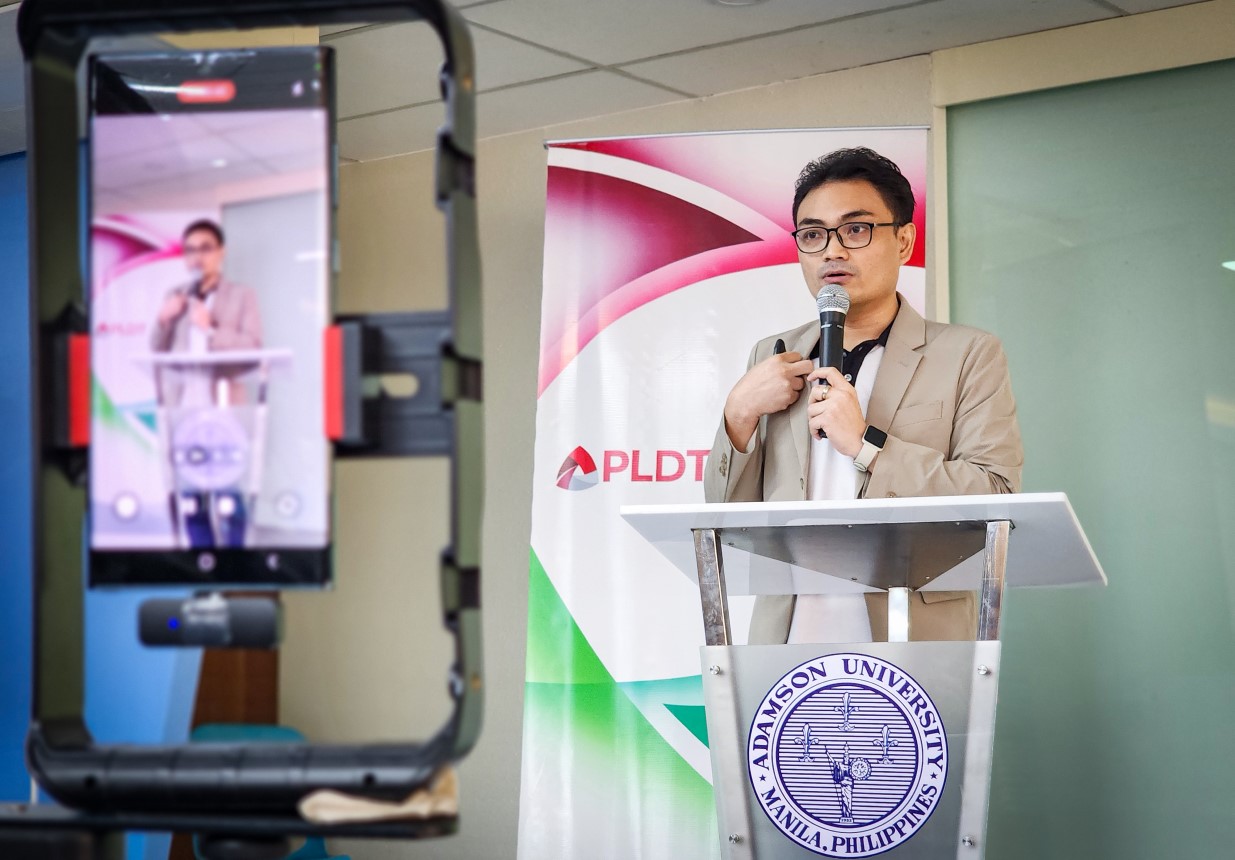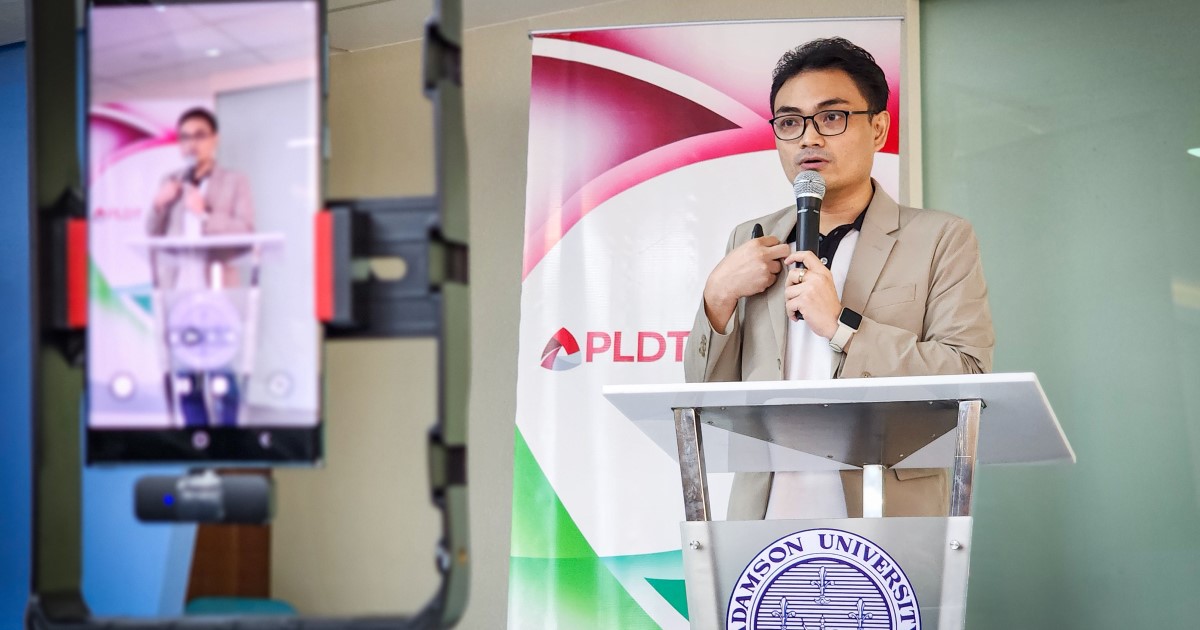
PLDT and its wireless unit Smart Communications, Inc. (Smart) equip students of Adamson University with cybersecurity information to make them CyberSmart in the age of Artificial Intelligence (AI).
“Data is the new oil. We must avoid oversharing our personal information because this might be used to take over our accounts or steal our identity. And hackers have been using A.I. to dupe their victims into giving up their personal data,” said Elijah Mendoza, Digital Communications Senior Manager at PLDT and Smart.
Highlighting the importance of practicing good data hygiene, Mendoza warned students about ‘social engineering’, a type of attack that manipulates victims into sharing confidential information.
_1.jpg)
Elijah Mendoza, Digital Communications Senior Manager at PLDT and Smart, shares #BeCyberSmart tips with Adamson University students.
One common tactic is ‘phishing’ where criminals can use AI to craft messages imitating legitimate entities then mass send them. These messages coax victims into clicking an embedded link that leads to a malicious domain that mimics the appearance of an organization’s official domain. The malicious site asks for the victims’ login credentials and other sensitive information, which can then be used for financial crimes or identity theft.
“The seminar highlighted the growing importance of cybersecurity in the age of AI, particularly how we must be proactive in protecting our personal data and remain aware of evolving threats like phishing and AI-generated scams,” said Robert Jaime D.C. Erandio, a B.S. Information Technology student at Adamson University.
Mendoza also discussed AI-powered tools that can help students identify if the material they’re reading or looking at has been generated by AI, including those that can identify if a text message is a scam or not.
_1.jpg)
PLDT and Smart empower Adamson University students to #BeCyberSmart.
“AI-powered applications provide us with more options to help make things easier. But I learned from the seminar that it is also important to use these innovations responsibly. I also learned how to protect our sensitive information from hackers and scammers,” said Patricia Marie Timosa, a B.A. Political Science student at Adamson University.
PLDT and Smart also continue to protect customers from scams and fraudulent activities. The PLDT Group urges customers to report text scams to its ‘HULISCAM’ portal at https://smart.com.ph/huliscam. They simply need to take note of the sender’s mobile number or any alphanumeric characters if it is shown, the date when the message was received, the actual message, and the receiver’s location when the message was received. PLDT and Smart actively investigate these messages and permanently block those they find to be fraudulent.
The efforts of PLDT and Smart to share #BeCyberSmart tips are rooted in their customer-centric culture where they aim to elevate the quality of customer experience by protecting them from threats and cyber-attacks. Aside from promoting the #BeCyberSmart culture, PLDT and Smart also relentlessly keep customers secure from cyber-attacks by preventing attempts to open malicious domains, and blacklisting malicious URLs and links tied to phishing, spams, hoaxes and other illegal activities.


